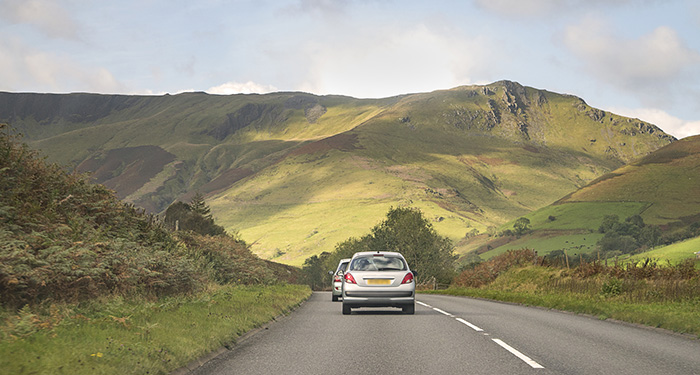10 Tips for Keeping Your Valuables Safe at the Airport
It’s normal for airlines to lose some of their passengers’ luggage in transit - Forbes estimates about 7.6 pieces go missing per every 1,000 travellers on average.
On top of this you also face the risk of your baggage being damaged or pilfered which is why it is so important to take care when travelling and minimize the opportunity of falling victim to theft.
Here are 10 tips on how to keep your luggage safe at the airports:
1. Keep your valuables in your hand luggage
It almost goes without saying that we recommend you always keep your valuables on your person. In the UK, you are allowed to take mobile phones, laptops, tablet devices, MP3 players, hair dryers/straighteners, travel irons, electric shavers and e-cigarettes in your hand luggage. You can also usually take camera equipment, however it is worth checking in advance as some specialist equipment is restricted.
Top tip: Always remember to ensure your electronic devices are fully charged before you travel. Failure to switch it on will mean you will not be able to take it on to the aircraft.
2. Split up your cash
This is a good tip to utilise in all situations, not just travelling. Divide your cash/cards up and keep them in different places so that should you find your purse is stolen you still have some money on-hand for those emergency situations.
Money belts are a terrific way to keep important documents and money safe when travelling. A money belt allows you to conceal your travel money and important documents that you may not need to have quick access to in the airport. You can even get money belts that look like ordinary belts for discretely carrying cash.
3. Be prepared for security
It’s easy to become distracted when you’re digging through your carry on in a mad rush searching for something at security. Organise yourself before going through the security checkpoint so you can focus on staying vigilant while going through security. Some key things to remember:
- Remove any liquids over 3.4 ounces (100 ml) and put the remainder in the transparent, resealable plastic bag.
- Make sure you take out your large electrical devices or collate them in a pocket which is easily accessible for when you reach the front of the queue as they must be X-rayed separately.
- If you have on a money belt, discretion is key. Before going through security pop to the restroom and remove your money belt in private and store in a safe place in your hand luggage. Once you are through security, go back to the bathroom and put it back on.
- Speaking of belts, remove your belt and put it in your hand luggage
- Remove anything from your pockets.
- Remove your jackets and shoes. Top tip, try to avoid going through security barefooted. Thousands of people go through each day so try to ensure you have a pair of socks on hand, to keep your feet protected.
- Keep your boarding pass and ID to hand should you need to show these to security officials.
4. Stay beside your carry-on at all times
It’s easy to be separated from your hand luggage when you’re moving through security at the airport. How many times have you been at the airport and you’ve found that you experience delays when passing through security? Whether you're faced with a wait to be body-scanned or once you’re through the body-scanner you have to wait for your tray to come through the luggage conveyor. Although you may feel pressured into doing so, try to avoid leaving your carry-on unattended.
5. Keep your carry on in sight
Try to avoid putting your carry-on in the overhead bins where you can but if you must, ensure they are secured with a lock. Although your first instinct may be to store your carry-on in the luggage bins above your seat, arguably the best place to store your hand-luggage is in the luggage bins directly across from your seat so that you can keep your eyes on it should anyone open said luggage bin.
6. Pack like a pro
It’s likely that your luggage will get tossed about at various points, such as loading and unloading from the plane, then hauling it off the baggage claim on arrival. In an attempt to minimise any damage, use clothing to provide protective padding around your valuables that you are unable to take in your hand luggage.
7. Wrap your checked-bag
In addition to locking your suitcase securely with a padlock, wrapping your checked baggage can help ensure that items are not pilfered from your suitcase while in-transit. It can also help stop anyone from having the ability to add things into your suitcase and smuggling items. As well as security, an additional benefit when it comes to wrapping luggage is that it can protect it from general wear and tear.
8. Make your checked-bags stand out
Make your bags easily identifiable. Some thieves bank on being able to boldly take other traveller’s suitcases. They hope that no one notices but if they do, they simply say that they mistook it for their own suitcase which looks similar. Make it impossible for thieves to do so by making your suitcase unique.
You can purchase personalised luggage straps, or if you have youngsters travelling with you, you can make it a game to decorate their own suitcase for the trip. If you happen to wrap your checked bags too, then adding stickers will not damage or deface the suitcase in any way. This will also help identify bags if they are lost by the airline, especially if you have purchased a bag in a common colour or brand.
9. Invest in a hard suitcase
Some believe that hard suitcases are harder to steal from as would-be thieves can slice from the thin fabric of soft luggage and pilfer some of the contents. There are pros and cons of either type of suitcase, so it's worth weighing up what you are looking for from your suitcase. In terms of protection, a hard suitcase is harder to break into subtly.
10. Check your insurance before you go
When shopping for travel insurance, look for policies that also cover your baggage. Check the fine print when looking at the cover and the excess required to pay should your valuables be stolen, lost or even damaged in transit. Take photos of the valuable items that you’ve taken with you on your trip and email it to yourself as proof, should you need to make a claim. It’s also worth getting a valuation on particular items that may no longer be able to be replaced like-for-like such as wedding bands etc.
Travel insurance from Towergate
Towergate offers a range of different travel insurance policies to suit your requirements, from long stay travel insurance to pre-existing medical conditions and business travel policies. For more information visit our holiday insurance section.
This is a marketing article by Towergate Insurance. The information contained is based on sources that we believe are reliable and should be understood as general risk management and insurance information only. It is not intended to be taken as advice with respect to any specific or individual situation and cannot be relied upon as such. If you wish to discuss your specific requirements, please do not hesitate to contact a Towergate Insurance adviser
About the author
Tony Gilpin MCMI, CII COP, is a highly respected and chartered industry leader with over 25 years’ experience in travel insurance, tour operators insurance financial failure insurance, travel agents insurance, bonding insurance and the travel industry, specialising in leadership, strategy, sales and account management. He is a Member of the Chartered Management Institute and also holds the Chartered Institute of Insurance's Certificate of Proficiency.
*Resolution 763 came into effect in June 2018 and mean that baggage must be tracked at four key points of the journey. From the luggage being handed over to the airline at check-in through to it being returned to the passenger.
Sources:
- https://www.forbes.com/sites/alexledsom/2024/05/01/japans-kansai-airport-world-record-no-luggage-lost-in-30-years/ (2024)
- Gov.uk, 2024. Hand luggage restrictions at UK airports [online] https://www.gov.uk/hand-luggage-restrictions/electronic-devices-and-electrical-items
- SITA, 2019. Baggage IT Insights 2019 [online] https://www.sita.aero/resources/surveys-reports/baggage-it-insights-2019/
Date: June 17, 2024
Category: Travel











